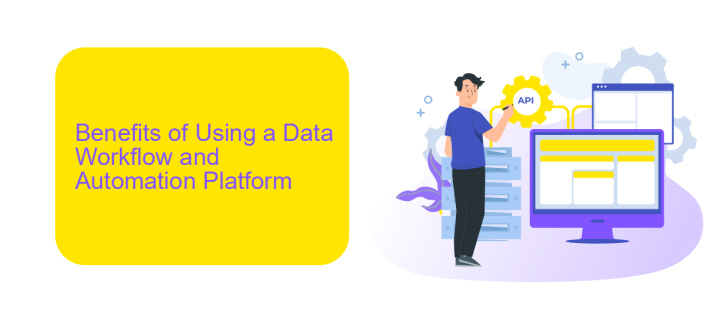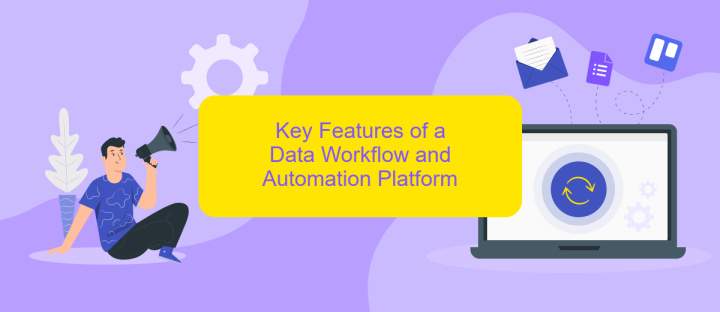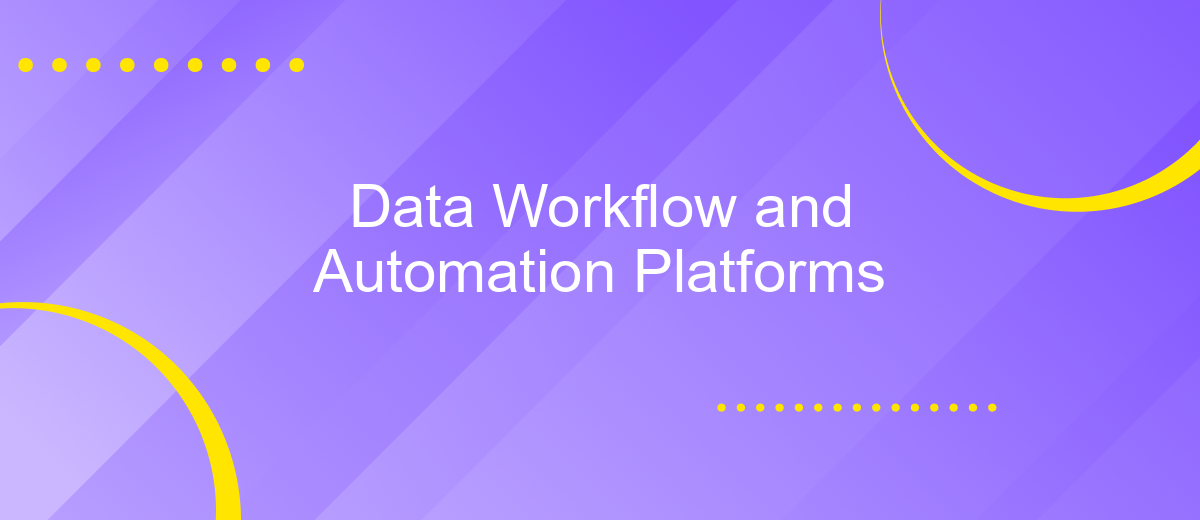Data Workflow and Automation Platforms
In today's data-driven world, managing and automating data workflows is crucial for efficiency and accuracy. Data Workflow and Automation Platforms streamline complex processes, enabling organizations to handle large volumes of data seamlessly. These platforms not only reduce manual effort but also enhance data quality and consistency, driving better decision-making and operational excellence.
What is a Data Workflow and Automation Platform?
A Data Workflow and Automation Platform is a comprehensive solution designed to streamline and automate the flow of data across various systems and applications. These platforms enable organizations to efficiently manage, process, and analyze data, reducing manual intervention and minimizing errors.
- Automated data integration and synchronization
- Real-time data processing and transformation
- Customizable workflows and triggers
- Scalable architecture supporting large data volumes
- Comprehensive monitoring and reporting tools
One such platform, ApiX-Drive, excels in setting up integrations between different services, allowing seamless data transfer and automation. By leveraging ApiX-Drive, businesses can connect various applications without the need for extensive coding, thus saving time and resources. This results in more efficient operations and better decision-making based on accurate and timely data.
Benefits of Using a Data Workflow and Automation Platform

Implementing a data workflow and automation platform streamlines complex processes, reducing the likelihood of human error and enhancing overall efficiency. By automating repetitive tasks, organizations can allocate resources more effectively, allowing teams to focus on strategic initiatives rather than mundane operational duties. This not only improves productivity but also accelerates project timelines, leading to faster delivery of services and products.
Moreover, such platforms often come with robust integration capabilities, enabling seamless connectivity between various tools and systems. For instance, ApiX-Drive offers an intuitive interface for setting up integrations without requiring extensive technical knowledge. This facilitates the smooth exchange of data across different applications, ensuring that information is always up-to-date and accessible. Consequently, decision-making processes become more data-driven and informed, fostering better business outcomes and a competitive edge in the market.
Key Features of a Data Workflow and Automation Platform

Data workflow and automation platforms are essential tools that streamline and enhance data processes across various industries. These platforms offer numerous features that facilitate efficient data management, integration, and analysis, ultimately driving better decision-making and operational efficiency.
- Data Integration: Seamlessly connect various data sources, including databases, cloud services, and APIs, to create a unified data ecosystem. Services like ApiX-Drive simplify this process by providing easy-to-use integration tools.
- Automation: Automate repetitive tasks and workflows to save time and reduce human error. This includes scheduling data transfers, triggering alerts, and executing predefined actions based on specific conditions.
- Data Transformation: Transform raw data into meaningful insights through data cleaning, enrichment, and aggregation. This ensures that the data is accurate, complete, and ready for analysis.
- Visualization and Reporting: Generate interactive dashboards and reports to visualize data trends and patterns. This helps stakeholders understand complex data easily and make informed decisions.
- Scalability and Flexibility: Adapt to changing data volumes and business requirements with scalable and flexible solutions. These platforms can handle increasing data loads and integrate with new data sources as needed.
By leveraging key features like data integration, automation, and visualization, data workflow and automation platforms empower organizations to optimize their data processes and achieve greater efficiency. Tools such as ApiX-Drive play a crucial role in simplifying integrations and enhancing overall data management capabilities.
Considerations When Choosing a Data Workflow and Automation Platform

When choosing a data workflow and automation platform, it is essential to consider several factors to ensure it meets your organization's needs. Evaluating the platform's scalability and flexibility is crucial, as these features will determine whether it can grow with your business and adapt to changing requirements.
Another important aspect is the platform's ability to integrate with existing tools and systems. Seamless integration can significantly enhance productivity and reduce manual effort. For example, ApiX-Drive offers robust integration capabilities, allowing you to connect various applications effortlessly.
- Scalability and flexibility
- Integration capabilities
- User-friendliness
- Security and compliance
- Cost-effectiveness
Finally, consider the platform's user-friendliness and support services. A user-friendly interface can reduce the learning curve and increase adoption rates among team members. Additionally, reliable customer support is vital for troubleshooting and ensuring smooth operations. By carefully evaluating these factors, you can select a platform that effectively meets your data workflow and automation needs.
- Automate the work of an online store or landing
- Empower through integration
- Don't spend money on programmers and integrators
- Save time by automating routine tasks
Examples of Data Workflow and Automation Platforms
Data workflow and automation platforms are essential tools for streamlining and optimizing data processes across various industries. One prominent example is Apache Airflow, an open-source platform that allows users to programmatically author, schedule, and monitor workflows. Its flexibility and scalability make it suitable for complex data pipelines, enabling seamless integration with various data sources and services. Another noteworthy platform is Alteryx, a user-friendly solution that empowers data analysts to prepare, blend, and analyze data with minimal coding. Its drag-and-drop interface simplifies the creation of data workflows, making it accessible to users with different levels of technical expertise.
ApiX-Drive is another valuable tool in the realm of data workflow and automation. It specializes in integrating various applications and services, allowing users to automate data transfers and streamline business processes without requiring extensive technical skills. With ApiX-Drive, users can set up triggers and actions between different platforms, ensuring that data flows smoothly and efficiently across their tech stack. This not only saves time but also minimizes the risk of errors, making it an excellent choice for businesses looking to enhance their data workflows through automation.
FAQ
What is a data workflow and automation platform?
How can automation platforms benefit my business?
What types of tasks can be automated with these platforms?
Is it necessary to have technical skills to use these platforms?
How do I ensure the security of my data when using an automation platform?
Apix-Drive will help optimize business processes, save you from a lot of routine tasks and unnecessary costs for automation, attracting additional specialists. Try setting up a free test connection with ApiX-Drive and see for yourself. Now you have to think about where to invest the freed time and money!


